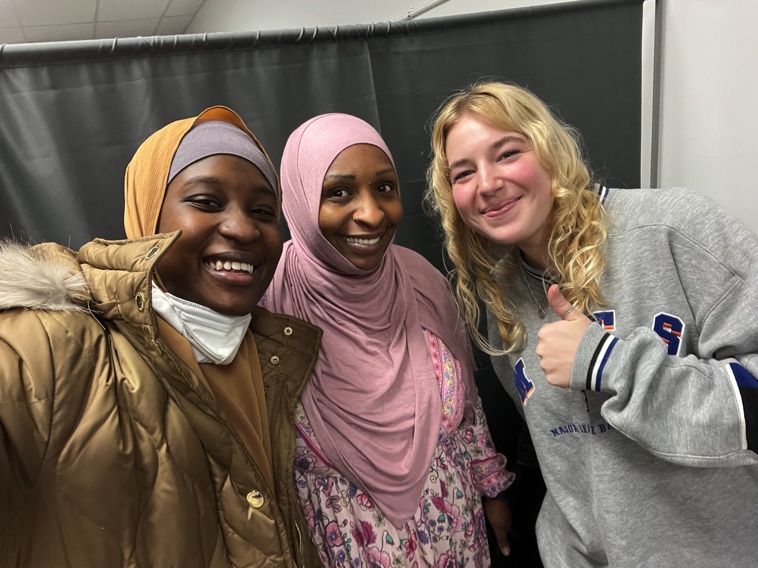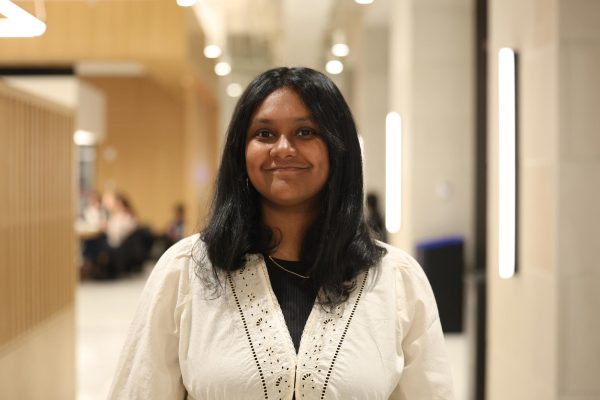Last Wednesday, Fordham University’s Center for Community Engaged Learning (CCEL) held an engagement opportunity for students at the Afrikana Center in Harlem. During the program, volunteers helped migrants and asylum seekers apply for city programs designed to help them integrate into city life. The event was organized by Adama Bah, founder of the Afrikana Center, and Kujegi Camara, assistant director of community engagement and operations at CCEL.
On Wednesday morning, Camara traveled with a student volunteer to the Afrikana Center from Fordham’s Lincoln Center campus. The five-hour shift involved working with asylum seekers one-on-one on applications to city programs such as IDNYC and Fair Fares. IDNYC is a city-wide program that provides residents with identification and access to municipal services regardless of their immigration status. Likewise, Fair Fares provides low-income New Yorkers with discounted MetroCards.
The Afrikana Center was founded by Adama Bah, a previous asylum seeker herself, to address the numerous needs of asylum seekers such as language services, mental health services and food supplies. The center operates solely by volunteers and estimates roughly 340 new arrivals each day.
The Center is also one of several organizations that is a community partner with CCEL. Fordham’s CCEL partners with community partners near the Lincoln Center and Rose Hill campuses to share resources and organize together in the wider social justice work in both boroughs.
The method follows an asset-based approach. “Asset-based [work] is really focusing on the strengths of an organization or community and building on that,” said Camara. “For example, at Fordham, we have an amazing student body, we have really renowned faculty to help support whatever project, program they’re working on.”
This comes into play with organizations such as Afrikana. “Adama Bah is the founder of Afrikana, and [by] hearing from her and listening to her about what she’s working on, organizing a grassroots organization to provide as much services as she can to the incoming migrant community… We’re [CCEL] like ‘how can we help, how can we make this better for you?’” When Bah expressed she needed volunteers, CCEL organized events such as the one on Wednesday to address that need.
Each borough has its own unique dynamic. In the Bronx, the nonprofit network is close-knit, where organizations have formed various coalitions such as Fordham in Community — a coalition of roughly 40 Bronx-based organizations,Fordham University included, that share resources and plan community events together.
Lincoln Center’s dynamic is characterized by extensive wealth disparities, Camara explains. “In Lincoln Center, you’re surrounded by extreme wealth but you also have the Amsterdam houses, NYCHA, public housing a few blocks from our Fordham campus.”
In Manhattan, CCEL builds relationships through more independent relationships with community partners. “Our approach in Manhattan and in the Greater New York City area,” said Camara, “is to find commonalities with local partners, so what we’ve been doing in Lincoln Center is trying to build a relationship with the Amsterdam houses… and to leverage [resources] to help them on whatever project they’re working on.”
Engagement programs, such as the one last Wednesday, are ways that CCEL brings students into the conversation and work of these community partners and the borough at large. They are ways of “continuing the ethos of being in community and learning and engaging with others,” as Camara puts it. Students provide important resources and volunteering hours that are important to community partners. Further opportunities can be accessed through CCEL.








































































































































































































